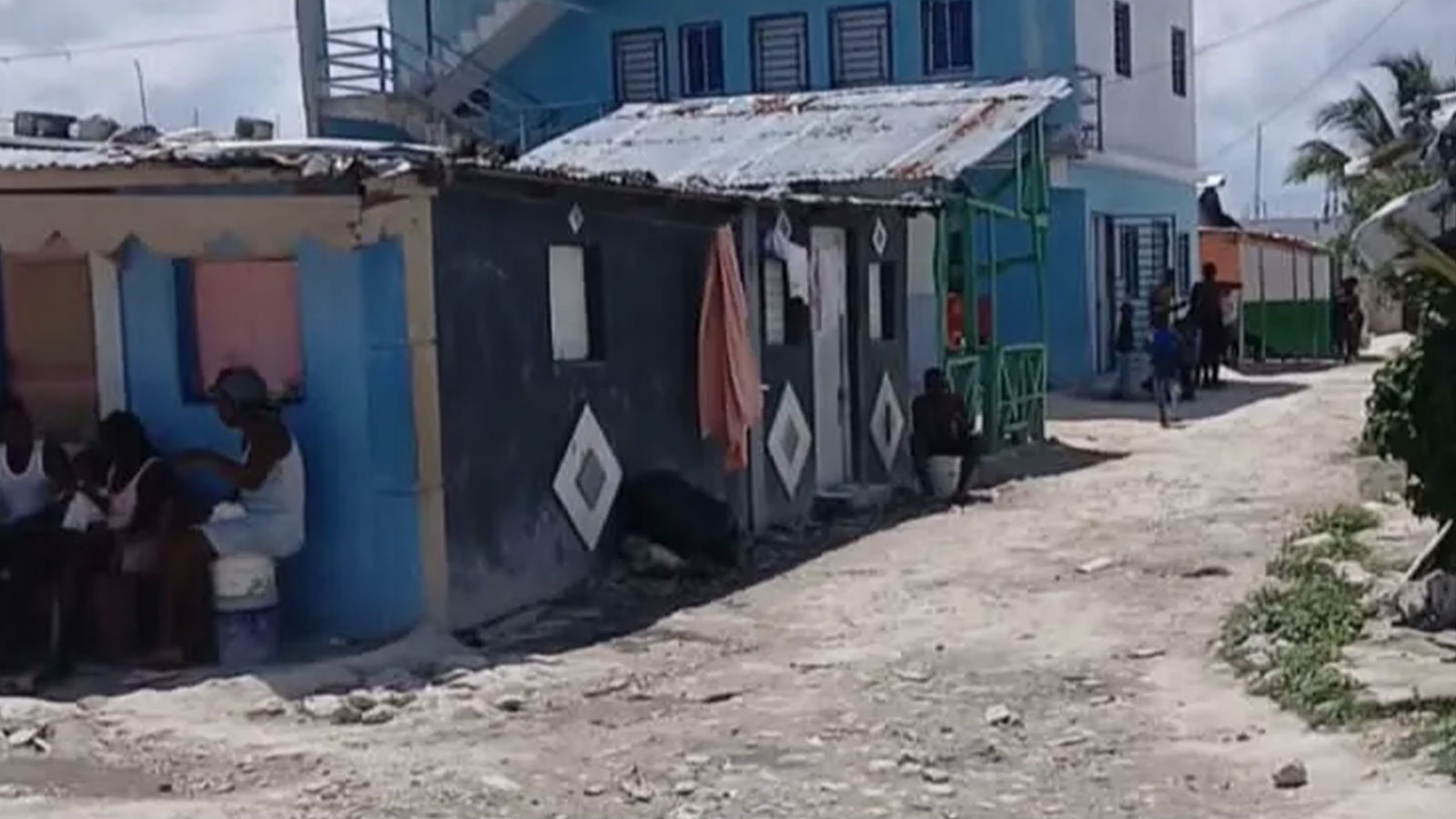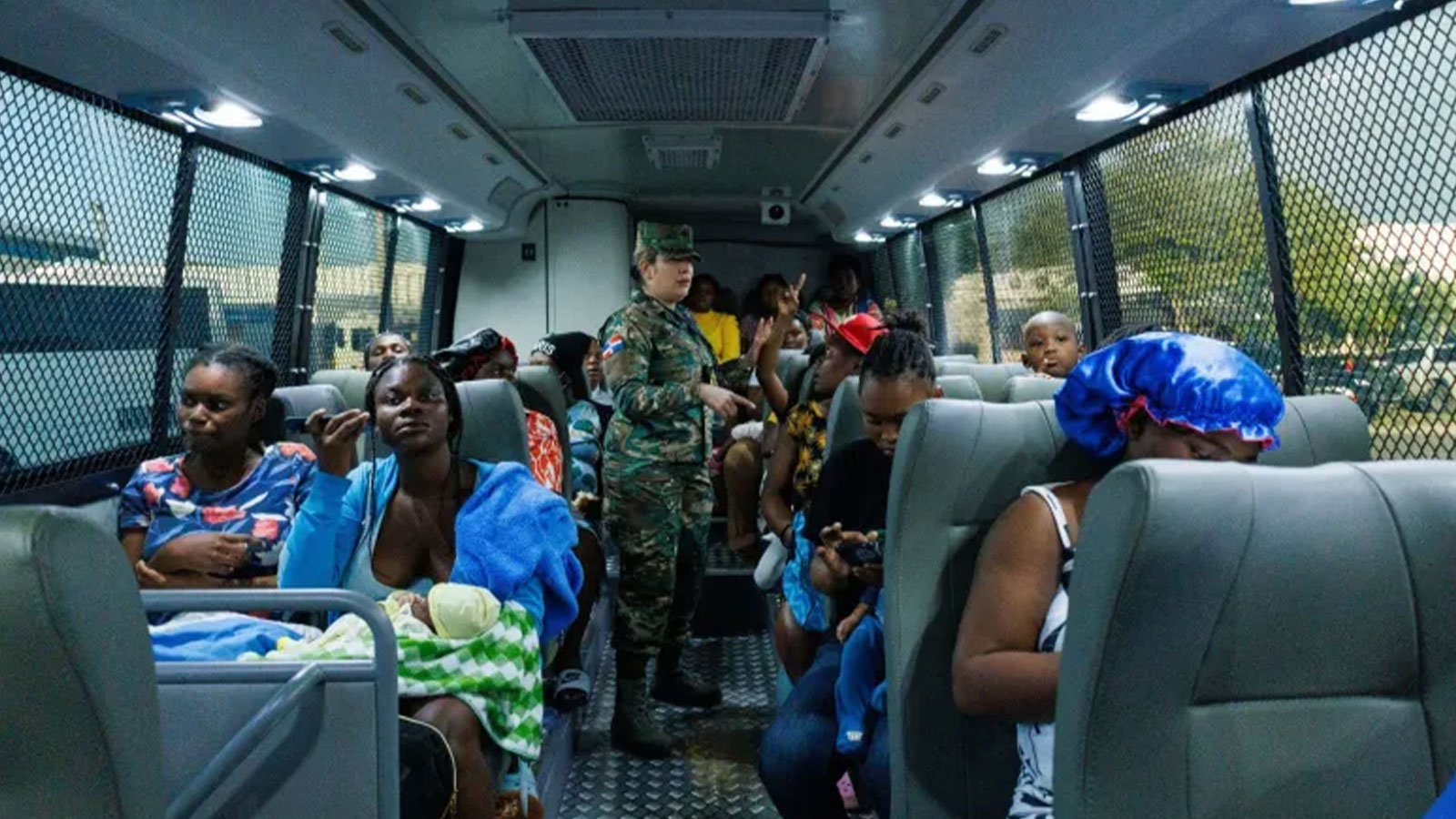Pregnant and breastfeeding women among hundreds expelled amid hospital crackdowns and raids.
By Edxon Francisque, Haitian Times —
Before dawn, they come knocking — sometimes kicking down doors, sometimes armed. Pregnant and breastfeeding women, children, and entire families are dragged from homes, hospitals, and shelters, loaded into trucks, and sent across the border. For many Haitian migrants in the Dominican Republic — especially in towns like Fruisa and Dajabón — that fear has become routine. The United Nations and human rights groups warn these deportations are putting lives at risk, as many are returned to Haiti with little or no access to basic medical care.
“They come at 3 a.m., beat you, point a gun at you, and take everything important in the house,” said Mickenson Gracia, a Haitian migrant who was living in Fruisa, describing a nighttime raid on April 14.
In recent weeks, mass expulsions of women in labor, pregnant or who have just given birth have escalated under new immigration policies introduced by Dominican President Luis Abinader. A newly enforced hospital policy requires medical staff to demand identification, a work letter, and proof of address before providing care — effectively cutting off access to healthcare for undocumented migrants.
“They come at 3 a.m., beat you, point a gun at you, and take everything important in the house.” — Mickenson Gracia, deported from Fruisa
Victims and advocates say this has turned hospitals into traps. The measures, framed as efforts to control “illegal” migration, have sparked widespread outcry from human rights groups, who say the country is violating international law and endangering lives.
On April 24, following the new hospital policy, more than 200 Haitian women and children were rounded up near border towns like Ouanaminthe, Dajabón, and Malpasse and were welcomed at the border by agents ofthe Ouanaminthe Border and Resource Center. Their arrival at the border offered a heartbreaking spectacle of destitution. Migrants disembarked from four of the eleven buses packed with more than 1,000 deportees headed to Ouanaminthe, many wearing only the clothes on their backs. Mothers, visibly exhausted from recent childbirth, clutched hastily packed bags and newborns in their arms. Their faces, marked by fatigue, grief, and uncertainty, look at the agents for any sign of comfort.
The United Nations has raised alarm about the escalating deportation of pregnant and breastfeeding women from the Dominican Republic. Stéphane Dujarric, a U.N. spokesperson, said many women “arrive in precarious and highly vulnerable conditions, often without any resources.”
On the same day, a 25-year-old Jerry Lucien, native of from Caracol, died at the Ouanaminthe Public Health Center. Lucien arrived at the Ouanaminthe border late on April 23 and rushed to the local center with severe head and chest injuries. According to Bel Phillius, a worker at the Ouanaminthe Border and Resource Center, Lucien told staff he had been brutally beaten by Dominican immigration officers during his arrest. Despite receiving overnight treatment, he died early the next morning. His body remains at a private morgue, pending next steps from the National Office for Migration (ONM) in Ouanaminthe.
“Jerry’s death is not an isolated incident — it’s the clearest example yet of how dangerous these deportations have become,” said one border worker who chose to stay anonymous due to fears of retribution.
“We had no choice.” — Leybi, a young Haitian mother evicted during a raid in Bavaro, who left a child behind
The increase in deportations comes as the University Hospital of Mirebalais in Haiti’s central region has suspended operations, according to a UN statement released Thursday. According to UN officials, two other hospitals in the area “face critical shortages.”
Voices from the ground: Inside the crackdowns in Fruisa and other cities where Haitians are under siege
The political collapse and economic turmoil in Haiti have pushed thousands to seek refuge in the neighboring Dominican Republic. But as that migration has grown, so too has anti-Haitian sentiment — stoked by nationalism and xenophobic rhetoric.
Nowhere has this been more evident than in Fruisa, a locality 134 miles from DR capital where recent anti-Haitian protests triggered a wave of evictions and police raids. Once a peaceful community, Fruisa has become a flashpoint of fear and violence for Haitian migrants following the protests.
At the Ouanaminthe Resource Center near the DR border, where newly arrived people who fled their home took refuge they described a life-threatening situation. Since mid-April, Dominican immigration agents, sometimes with military backup, have intensified sweeps targeting particularly women and children.. They described to the Haitian Times nights filled with dread, marked by sudden raids, gunshots, and the constant threat of deportation. For many, daily life has turned into survival mode.
Faced with escalating violence, many have fled.
On April 14, Leybi, who used to live in Bavaro, a young Haitian mother, was evicted from her home during a raid. In the chaos, she left one of her children behind with a neighbor.
“Almost everyone fled the area after the Fruisa protests,” she said. “We had no choice.” Leybi who wanted to only be identified by her first name told the Haitian Times as she just crossed the border.
Gracia and Leybi’s account captures the terror shared by dozens of others facing unannounced nighttime.

Empty streets in Fruisa where a lot of Haitians were living. They were expelled to Haiti On April 23. Photo courtesy of Santiago Molina.
Others say these operations have grown increasingly aggressive.
“As soon as they enter your home, they take everything you own — money, jewelry, anything,” said Jacquelin Charles, who fled with her family after repeated harassment, recounted how immigration agents ransacked homes, stealing valuable.
The systematic nature of the crackdown, the violent dispossession, combined with arrest — and the impunity with which it’s carried out — have left migrants with nowhere to turn. Some who tried to report abuse say they were met with retaliation, not protection.
“Since we went to complain about the abuses we suffer, the leaders have even shot at us or called immigration to deport us,” Charles added.
“This is their daily reality,” Molina said. “They are shooting at them like animals,” said Santiago Molina a Dominican lawyer who defends Haitians facing discrimination in the Dominican Republic who confirmed the pattern of abuse.
“They beat people, steal their belongings, and commit every kind of abuse imaginable,” he said. “There’s a culture of impunity.”
“No one should be forced to give birth in fear.” — Jesula Blanc, lawyer and advocate at Ouanaminthe Gender Platform
Haitian migrants say they are trapped between state-sanctioned violence and complete lawlessness. Some report that when they tried to file complaints about abuse, local officials either ignored them — or retaliated.
“These measures are catastrophic,” Jesula Blanc, a lawyer and advocate for Haitian women and children told The Haitian Times.
“Women in labor are being denied care and then deported. It’s inhumane,” said Ms. Blanc, the head of a Ouanaminthe Northeast Gender Platform who was involved in welcoming the women and their children.
“The practice of arresting women on bed rest without any regard for their well-being — or that of their unborn children — shows a total disregard for human dignity.”
Calls for help and urgent action
Video footage circulating on social media shows women and other migrants in despair hiding in forests, pleading for food, water, and help. In one clip, activist Santiago Molina captures the moment families run for safety as gunfire erupts in the background.
“This is the daily reality, every day here in this region,” Molina said commenting on the video.
Human rights organizations continue sounding the alarm. Several have condemned the deportations as violations of international law — and called for immediate investigations into the Dominican government’s actions.
Cristina Dolis, head of the Haitian and Dominican Women’s Organization, called the crackdown unprecedented. “We’ve never seen a situation like this,” she said. “There’s no regard for health, safety, or human dignity.”
Advocacy groups are urging the Haitian government to respond and protect its citizens, and calling on the international community to hold the Dominican Republic accountable. Among the demands: stronger protections for migrants, the suspension of hospital ID policies, and an independent review of law enforcement conduct.
“This is a humanitarian crisis,” said Blanc. “These are systematic abuses. Pregnant women and children are being treated as threats.”
“We are asking for dignity,” Blanc said. “No one should be forced to give birth in fear. No child should be left behind in the middle of the night.”
Source: Haitian Times
Featured image: A soldier chats with a Haitian mother on a bus heading to the border of the Dominican Republic and Haiti where she is being deported.















